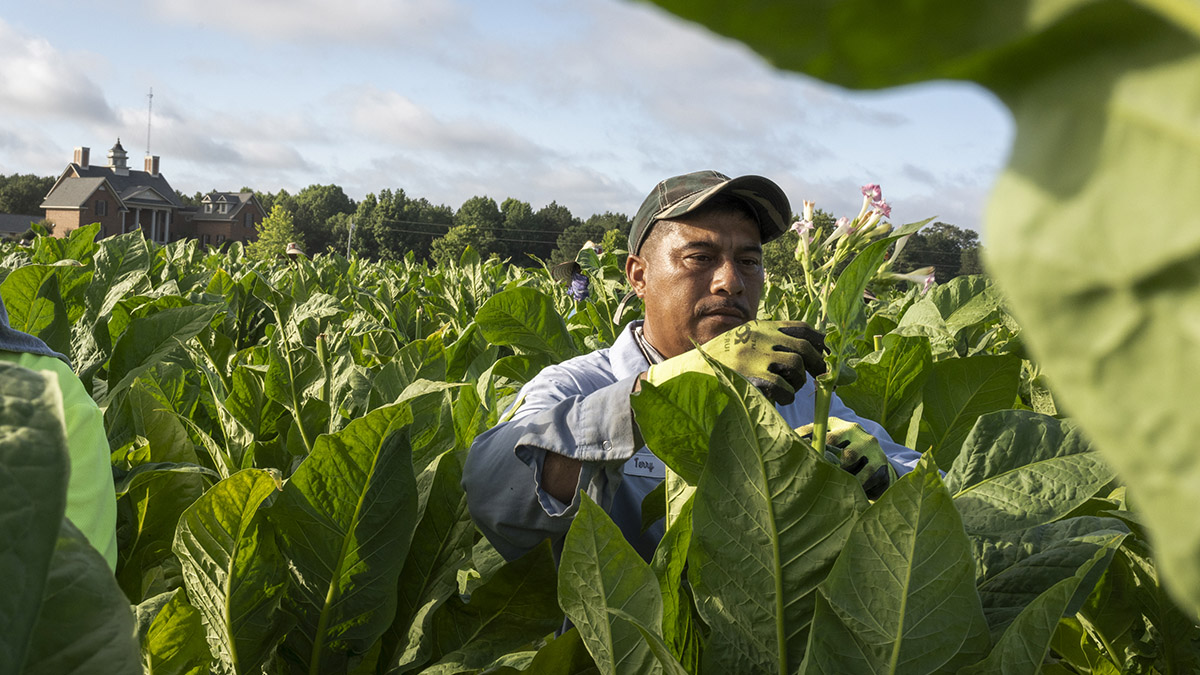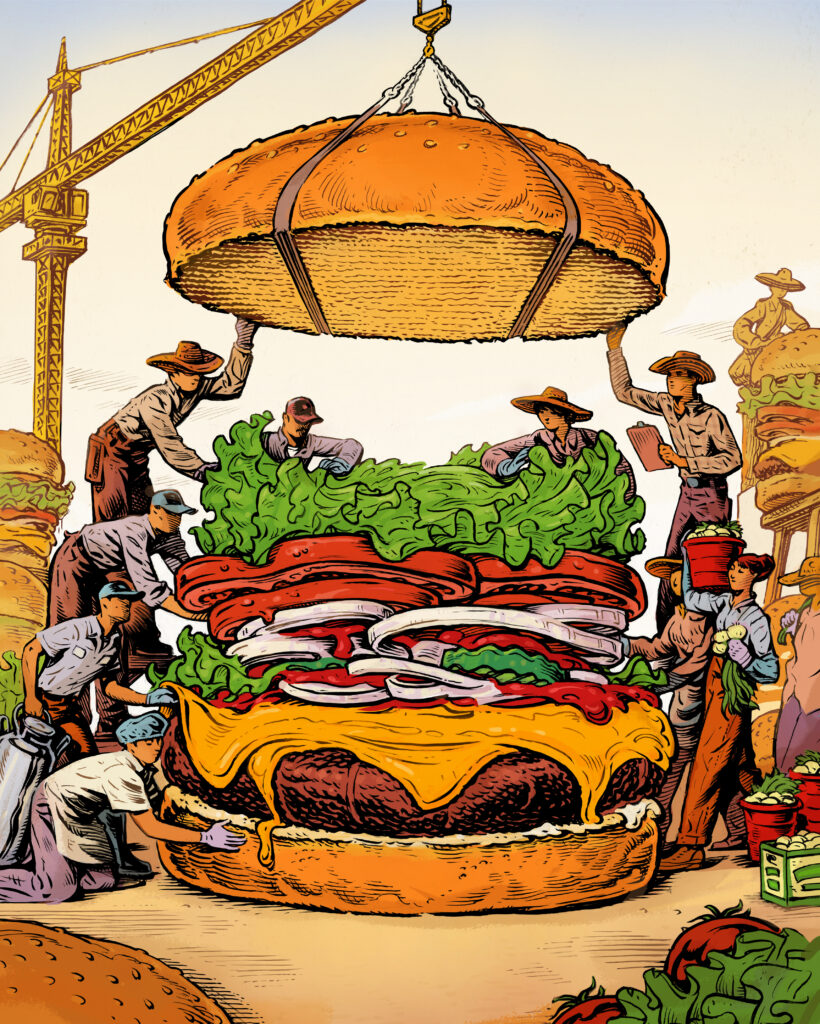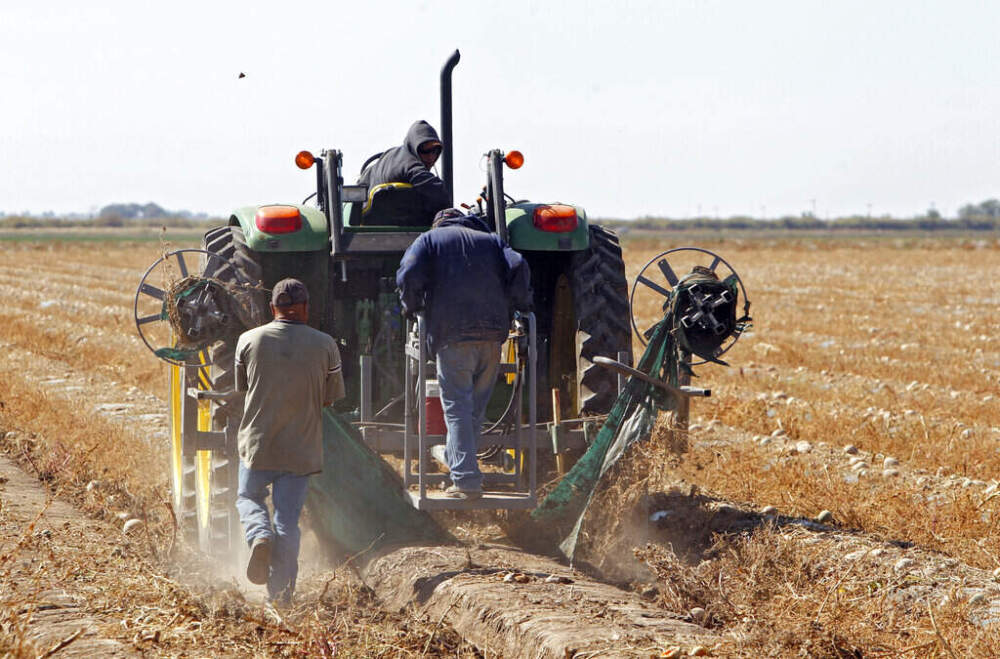Quick Guide
Overview
America’s food supply depends on a reliable agricultural workforce. But right now, farms across the country are facing severe labor shortages, threatening production, food prices, and the stability of rural economies. Immigrant workers many of whom have lived and worked in the U.S. for years are essential to the future of farming.
This is more than an immigration issue. It is a food security issue. And if we do not act, it is American families, farms, and businesses that will pay the price.

Key Facts
- Over 2.4 million farmworkers power America’s food system with seventy percent of farmworkers being foreign-born, and roughly half lacking legal status.
- The food and agriculture sector contributes more than $1.4 trillion to the U.S. economy each year and supports over 34 million jobs across the supply chain.
- According to data from the Bureau of Economic Analysis, agriculture, food, and related industries contributed roughly $1.537 trillion to U.S. gross domestic product (GDP) in 2023, a 5.5-percent share. Mass deportations could shrink the overall U.S. GDP by 4.2 to 6.8 percent.
- 42% of U.S. adults expect deportations to lead to higher food prices in their area. Lack of reliable, affordable farm labor is causing U.S. farmers to lose their global competitive edge. In 2024, the U.S. agricultural sector faced its largest trade deficit ever, driven by sharp increases in imports of labor-intensive products like fresh produce and horticultural goods.
- Farmers across the country report leaving crops unharvested due to a lack of workers, costing the industry billions in lost revenue.
- In Ventura County, for example, immigration enforcement has had an immediate effect with Maureen McGuire, chief executive of the Ventura County Farm Bureau, stating that between 25% and 45% of farmworkers have stopped showing up for work since large-scale raids began in June 2025.
The Real Issue: A Shrinking, Unsustainable Labor Pool
U.S. agriculture has a growing labor problem and no clear backup plan. Domestic workers are not filling these jobs. The H-2A temporary visa program, though expanding, is costly, complex, and still falls short of meeting demand. On top of that, dairy farmers, most livestock farmers and a large portion of produce farmers are ineligible to apply for H2A workers at all.
The result is that crops go unpicked, cows go un-milked, prices rise, and family farms particularly in rural communities face financial collapse.
Immigrant Workers: Feeding America, Rain or Shine
Immigrant farmworkers are the backbone of U.S. agriculture. They plant, harvest, and process the food that ends up on every grocery store shelf and dinner table. Many have lived in the United States for years, raised families, and paid taxes all while performing one of the nation’s hardest and most essential jobs. If we want our children eating American grown fruits and vegetables, if we want to support rural economies, and if we want to see farmers succeed, we need to support farmers by giving them access to the workforce they rely on to get the job done.
It is critical to maintaining food production and reducing our reliance on foreign nations to feed us. Food security is national stability.
Policy Recommendations
To secure America’s food supply, policymakers must:
- Create legal pathways for long-settled, tax-paying agricultural workers with no criminal records
- Modernize and expand access to the H-2A visa process to reduce cost and cut bureaucratic red tape that holds our farmers back.
- Pair border security with realistic, workforce-driven solutions tailored to the agricultural economy
Bottom Line
Without a stable workforce, America cannot feed itself. Immigrant farmworkers are already doing the work. What we need is smart policy to protect and retain them.
This is not a partisan issue. It is a question of whether we let food rot in the fields — or stand up for the workers, farmers, and families who keep America fed.
Updated on September 10, 2025



